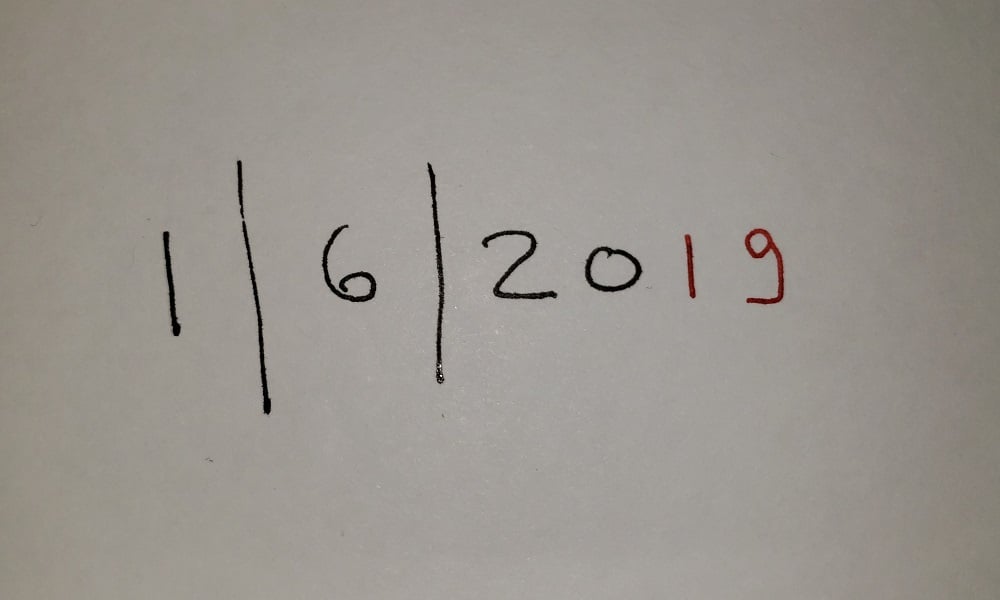Do Not Abbreviate The Year 2020 As “20” When Writing The Date: Use “January 3, 2020,” Not “1/3/20”
While many of us normally abbreviate years – for example, by writing 2019 as “19” – doing so in 2020 can be dangerous.
Because the last two digits of the date – “20” – are also the first two digits of the current century, writing just “20” allows people to modify the date backwards or forwards with a great deal of ease. Easy modification may be acceptable – or even preferable – in diaries, school notes, or personal correspondence, but, when it comes to checks and other important documents, it can be dangerous, and lead to fraud.
Unscrupulous folks can easily change dates to earlier dates. If you sign an agreement that requires you to make annual payments starting one year after the date of the contact, for example, and you date the agreement “1/6/20,” the counterparty could easily add “19” to the end of the date and demand that you make the first payment immediately, since the agreement commenced on “1/6/2019.”
Likewise, crooks can modify dates forwards. If you were the lender in the aforementioned example, the borrower could change “1/6/20” to “1/6/2021” or some later date, and refuse to pay you when the first payment – or first series of payments – should have become due.
Similar risks apply to checks – a check dated “1/6/20” could theoretically be modified to any January 6th until 2100; if you stopped payment on a check written with an abbreviated date in 2020, you might need to close your account in order to prevent having to re-stop the check every 6 months for the rest of your life.
In general, for at least two reasons, it is better to write out the full date whenever you are writing a document with any legal significance – “January 6, 2020” or “6 January 2020,” not “1/6/20,” or even “1/6/2020”:
1. Formats such as “1/6/20″ are ambiguous and can lead to confusion and conflicts; while most Americans understand “1/6/20” to mean January 6, 2020,” for example, many people in other regions, and some folks in the United States, interpret it to mean the 1st of June, 2020.
2. It is much harder to unscrupulously modify a fully written date than to similarly change its equivalent numeric shorthand. “1/6/2020,” for example, can be modified to “11/6/2020” far more easily than “January 6, 2020” can be changed to “November 6, 2020”.) In fact, for similar reasons, single-digit dates should ideally be written with a preceding zero (“January 06, 2020” instead of “January 6, 2020”) – but, for cultural and other reasons, few people are likely to follow such advice.
Best wishes for a successful and safe 2020!













 CyberSecurity for Dummies is now available at special discounted pricing on Amazon.
Give the gift of cybersecurity to a loved one.
CyberSecurity for Dummies is now available at special discounted pricing on Amazon.
Give the gift of cybersecurity to a loved one.